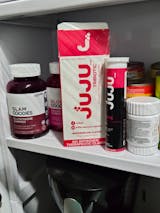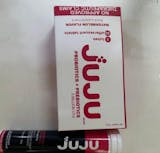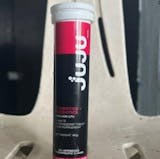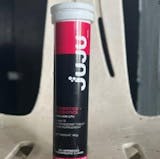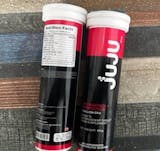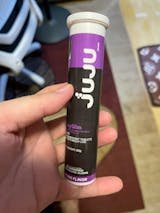The skin is the biggest organ in the human body. It’s your first line of defense against the elements, and it’s a strict high performer who never lets you off the hook, but it requires your help. Although the benefits of a balanced diet and regular use of skincare products containing high-quality components, such as those that increase skin’s moisture, suppleness, and glow, appear instant, they are actually the result of years of careful maintenance.
We’d all like to maintain a youthful appearance and natural beauty, but getting the proper nutrition might be challenging. Vitamins for nails, skin and hair, like collagen supplements, are available to assist as your optimal solutions.
Collagen is widely known as the primary component of bones and connective tissues. Despite its widespread presence throughout the body, most individuals are unaware of collagen’s many other uses. In any case, what is collagen? Moreover, why do you think that individuals should take it? This article will discuss the significance of collagen and the advantages of collagen supplementation.
IN THIS ARTICLE
07. Final Thoughts
Why Take Collagen Supplements?
People these days are extremely health conscious. Many people opt to vitamin supplements, vitamins minerals, biotin vitamins and many more to support their healthy lifestyle. People strive to maintain a healthy body and youthful appearance. Feeling old is the worst possible thing, because it reduces one’s ability to do things. Who wouldn’t want to devote as much time as possible to a pastime they enjoy?
Many people take collagen supplements and beauty supplement , and for good reason. Bones, muscles, hair growth and joints can’t function properly without collagen. As it increases suppleness in your skin, hair, and nails, collagen is widely used in the beauty industry. Taking this supplement has additional positive effects on joint health beyond those provided by collagen alone.
Collagen, the body’s most prevalent protein, plays an important role in the health of the skin, blood vessels, tendons, cartilage, bones, and teeth. It’s also involved in numerous other tissues like muscles, organs, and bones. According to research published in 2012 in The Journal of Clinical and Aesthetic Dermatology, collagen supplements can help women experiencing hair thinning by significantly improving their hair’s quality.
Collagen acts as the “glue” that keeps everything in your body together. Your joints’ range of motion would be diminished without it. Because modern diets can reduce natural collagen production, many people find it necessary to take collagen supplements to maintain healthy levels, promotes hair health, vitamin b7, skin and nail health, and other vitamins and nutrients.
Aging brings about a natural decline in physical function. Aging, sickness, heredity, and long-term use all take their toll on a person’s physical condition. Wrinkles form when collagen is broken down, which can happen as a result of ageing, UV damage, drinking alcohol, or exposure to other chemicals. Joint pain, stiffness, and inflammation are all symptoms associated with a decline in collagen levels, which can occur naturally with age or as a result of diseases like arthritis. But there is one solution to fighting off this deterioration: collagen supplements.
You undoubtedly already know that collagen, a protein naturally produced by your body, can make your skin look younger and firmer. However, collagen also helps lessen inflammation, increases joint mobility, and keeps bones strong.
Collagen is not just helpful, but crucial to optimum health because it makes up so many important elements of the body. However, collagen supplements’ effectiveness is still up for discussion. There is some evidence that they aid in keeping skin moist and easing the pain of osteoarthritis, but the advantages to things like blood pressure and blood sugar are less well understood and require additional study.
Loss of collagen production is associated with ageing. A number of people take collagen supplements in an effort to repair collagen levels.
Bone mineral density was observed to increase in postmenopausal women who took a collagen supplement in a study conducted in 2018. Additionally, the study demonstrated that the supplement had the potential to promote bone formation and inhibit bone loss. Collagen supplements have showed promise in a number of studies, including those examining their effects on bone density, joint health, and the appearance of aged skin. While these findings show promise, more study is required to determine the true efficacy of collagen supplementation.
BENEFITS OF COLLAGEN
Some of the most frequently mentioned advantages of collagen supplements are as follows:
Moisturization and Skin's Elasticity
The skin’s ability to retain moisture, flexibility and extra strength as we age has been found to be enhanced by taking oral collagen supplements. There’s a chance that they can help reduce the appearance of wrinkles, too and improves your skin health.
The dry weight of your skin is 75% collagen. Collagen in the deeper dermal layer diminishes with ageing. That makes it less resilient and more prone to breaking and can improve your bone health.
The potential benefits of collagen supplementation on skin tissue were investigated in a 2015 laboratory study. The outcomes indicated that dietary supplements may improve skin moisture and the collagen network of the skin. Collagen also demonstrated promise as a remedy for skin damage caused by ageing.
Collagen Can Help Reduce Joint Pain
Pain in the joints might make it hard to work out, which can derail your progress. If you feel like you’ve gotten off track, maybe taking a collagen supplement will help you. Specifically, athletes with knee pain who took 5 g of collagen peptides daily for 12 weeks experienced less joint pain during exercise compared to a placebo group, according to a study published in January 2017 in the journal Applied Physiology, Nutrition, and Metabolism.
Collagen taken orally has shown promise as an anti-inflammatory and a possible aid to cartilage repair.
Oral collagen supplements may reduce inflammation and pain in persons with knee osteoarthritis. It could take up to five months of regular treatment to notice these benefits.
It has been hypothesized by researchers that taking collagen supplements will cause your cartilage to accumulate collagen. As a result, you may experience less pain, enhanced joint support, and reduced inflammation. Experts warn that more research is needed before collagen can be recommended as a treatment for osteoarthritis, despite the promising results of the research thus far.
Boost Cardiovascular Fitness
Thirty-one healthy adults consumed 16 grams of collagen everyday for a full six months. By the end of the research, their arterial stiffness had decreased significantly. Arteries, the blood veins that transport blood from the heart to the rest of the body, rely on collagen for their structure. Collagen deficiency has been linked to a loss of arterial elasticity.
Thicker Hair
Although male pattern baldness is more common, female pattern hair loss is also rather common. In one study, women experiencing hair loss who took collagen supplements daily saw improvements in hair density, scalp covering, extra strength hair skin and overall hair thickness after eight weeks.
Although many vegan hair products is out in the market that claims to help the conditions of our hair and scalp. Taking collagen builder supplements is also a way to keep our hair health in good condition. Additional help will definitely benefit us from achieving natures bounty extra strength hair we all want.
Supports The Healing Of A Damaged Intestine
Toxins can wreak havoc on your entire body if they are able to travel past your digestive tract and into the bloodstream in those with leaky gut. A leaky gut can be healed with the help of collagen, which acts as a sealant in the digestive tract. Collagen could aid digestion in those with inflammatory bowel illness.
Inflammation is linked to an imbalance between the creation and breakdown of collagen fibers, according to research published in May 2017 in the journal Alimentary Pharmacology and Therapeutics. Since your colon and GI tract are made of connective tissue, increasing your collagen levels may provide a healing environment for your body. According to her, this is still a developing theory, but it’s worth considering if you’re thinking about taking a supplement or changing your diet to get more collagen.
Improvements to Nail Health
Nails of certain people don’t grow as quickly and also break more easily. One study showed that after only four weeks of daily collagen supplements, women saw faster nail growth and fewer broken or chipped nails. Collagen supplements may help prevent nail brittleness, which can lead to a noticeable increase in nail strength. In addition, it may promote longer hair and nails.
Aside form taking nail supplements that promise an undeniable beauty in your nails health, taking collagen will add an additional help to achieve that healthy nails.
How Soon Before I See Results From Taking Collagen?
Yes, you’ll need to have a little more patience for that. Although there are some early indicators of success (which we’ll get into below), in order to reap the full benefits of your supplements, you should give them at least a few weeks to work.
Regular collagen supplementation has been shown to improve the health of the skin, nails, muscles, and joints after three to six months, though outcomes have varied between research. Age, diet, and general health are just a few of the variables that can extend the time it takes to see an effect.
Which Type of Collagen Is the Most Effective?
Most experts agree that collagen peptides are the most digestible type of collagen. If you want to take a collagen supplement, hydrolyzed collagen is the way to go. If a product claims to contain hydrolyzed collagen, it means the collagen has been broken down into little peptides that the body may easily absorb. Marine or bovine (cow) protein collagen peptides are a soluble supplement. These peptides benefit the skin, bones, and joints since they include abundant amounts of collagen types I and III. Peptides typically have no taste and can be dissolved entirely in either hot or cold liquid.
Some collagen capsules include only collagen in powder form, while others combine collagen with hyaluronic acid and vitamin C, all of which are thought to be beneficial to the skin. You need to like drinking liquids or smoothies in order to enjoy powder.
Collagen can also be formed into a gummy by combining it with sugar and other substances. The capsule form is available as an alternative to the gummy candy or nail gummy .
3 Types of Collagen
- Type I Collagen
Most of the collagen in your body is of the type I variety. The dermis is the layer of skin directly beneath the epidermis and contains 90% of the body’s total collagen supply. Because of its vast variety of possible advantages, type I collagen can be found in most supplement varieties.
Type I collagen is found in supplements from either fish or eggshell membranes or from bovine sources. Consumers are interested in possible aid for joint, hair, nail, skin, ligament, and cartilage health, but many of the studies showing advantages of these products are industry supported and more objective research is required.
Nearly 30% of the body’s total protein content is collagen, while 60% of cartilage is collagen. Thinner, drier, and less elastic skin are the results of the body’s collagen production slowing and eventually stopping altogether around age 30. Depending on your goals, collagen supplements may help reduce the negative impacts of collagen depletion, but this is still an area where more study is needed.
- Type II Collagen
Marine and poultry products both include type II collagen. Consult a physician before taking type II collagen supplements if you have an allergy to fish or fowl.
Although there is a lack of data on type II collagen’s effectiveness at the moment, preliminary trials on persons with knee osteoarthritis have shown encouraging results when combined with acetaminophen for pain relief.
The molecules of type II collagen are further apart than those of type I collagen. This may suggest that this form of collagen is easier for the body to digest and absorb. Restoring damaged cartilage and increasing mobility in your joints are two more potential advantages.
- Type III Collagen
Type III collagen is the second most common type of collagen found naturally in the body. This type is different from the others because of its singular alpha chain. The other types of collagen have multiple alpha chains.
In conjunction with type I, type III collagen is thought to support gut, muscles, blood vessels and the uterus. Bovine products are the most common source of type III collagen.
While some studies show the body may utilize type III collagen to help fight inflammatory diseases, the body will use amino acids in whatever way it needs, putting the role supplements can play in this process in question. Taking a specific collagen supplement to target specific areas of the body will not necessarily be successful.
Frequently Asked Questions
Is it safe to take collagen supplements every day?
Collagen is generally considered to be a safe and nontoxic daily supplement for healthy individuals, and most people won’t experience adverse side effects.
How often should collagen be taken?
There are no official guidelines as to how much collagen should be taken per day. Generally, for improved skin and hair health, 2.5-10 grams of collagen peptides can be taken orally for 8-12 weeks daily. For arthritis, 10 grams of collagen peptides can be taken daily in 1-2 divided doses for about 5 months.
At what age should you start collagen?
Your early to mid-20s are a great time to think about starting to supplement with collagen. As our bodies stops producing so much collagen there is a gradual deterioration of protein fibres. We start to notice that our skin is more dehydrated and thinner and wrinkles start to appear.
What happens when you start taking collagen?
Some studies show that taking collagen supplements for several months can improve skin elasticity, (i.e., wrinkles and roughness) as well as signs of aging. Others have shown that consuming collagen can increase density in bones weakened with age and can improve joint, back and knee pain.
Final Thoughts
Vitamins are essential for healthy hair and skin. Hair health is sensitive to dietary changes. Vitamin A, which is essential for healthy hair, skin, and nails, is difficult to come by in the diet. Taking dietary supplements containing collagen and the like can help you maintain strong nails and glowing skin.
There is no need to rely on external means for our body to develop new tissue, keep existing tissue healthy, or repair damaged tissue. So even when we consume collagen supplements in food or as pills, it will not change our body to make stronger bones, smoother hair and so on. Genes inside our cells regulate protein synthesis, including collagen synthesis, and this is what gives us smooth skin. In order for hair to emerge from the scalp, the endocrine system must maintain homoeostasis. The process of keratinization is crucial for healthy nails. Again, hormones and growth factors deep within your tissues regulate the proliferation of the cells that make up your nail bed and keep them functioning normally from early development into old age.


